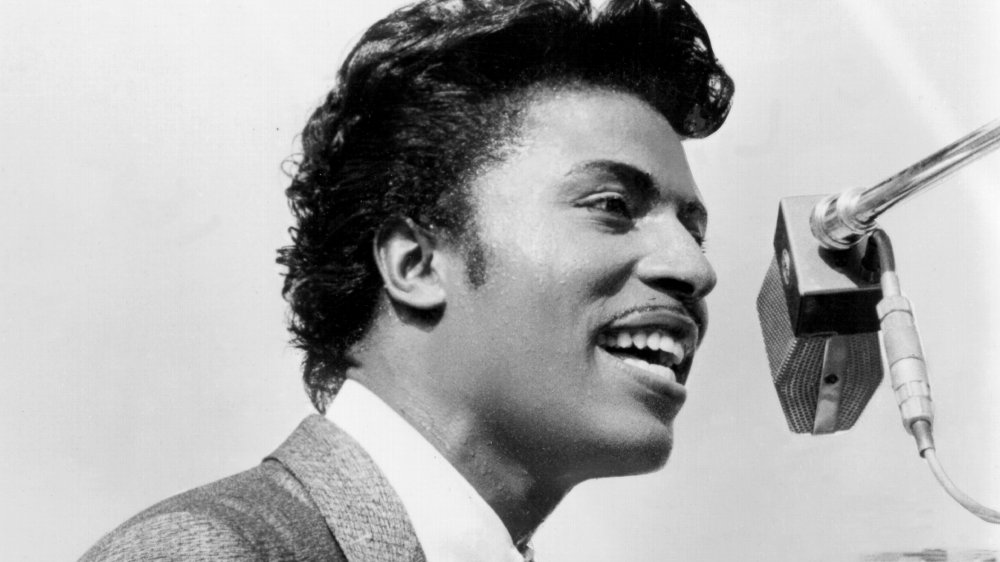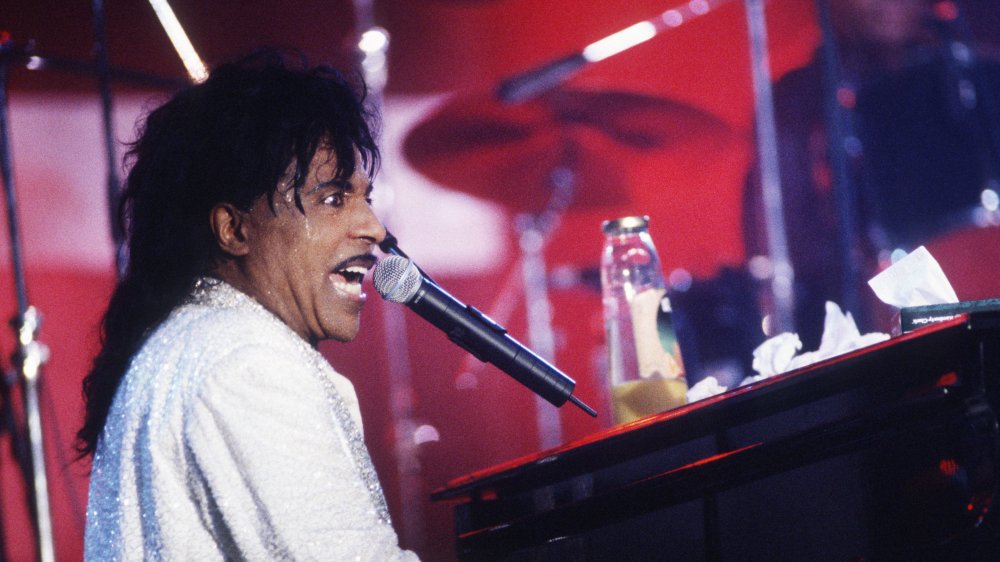The One Regret Little Richard Had In His Career
Modern music would sound very different (and probably much sadder) without the contributions of the late, great Little Richard. You can take it from Rolling Stone magazine. After his death in May of 2020, the magazine called him "a founding father of rock & roll whose fervent shrieks, flamboyant garb, and joyful, gender-bending persona embodied the spirit and sound of that new art form." Like many artists, however, Little Richard was often let down by the very industry he worked in for most of his life.
According to a 1984 article in Jet, his biggest regret was "not having been educated enough to protect himself from unscrupulous record executives." Calling himself "ignorant, illiterate really," he recalled, "I was so glad to be famous, but if I had my life to live over again, one of my greatest desires would be to be more educated so I could protect myself." Richard went on to note that "These people have used my music and it's still selling," mentioning a video of Donald Duck performing his signature song, "Tutti Frutti." He filed a lawsuit against several music organizations for $112 million in order to collect royalties he'd never been paid. According to Forbes, Little Richard's poor treatment from the music industry actually started with his contract for "Tutti Frutti," for which Specialty Records paid him "$50 and half a cent for each record sold." By the time "Tutti Frutti" had sold 500,000 copies, Little Richard had earned just $25,000.
Flat fees = no royalties
Little Richard may have blamed himself for the treatment he received from music companies, but as Forbes pointed out, his bad deals often resulted from the racist treatment that was par for the course for Black artists. Forbes called his shoddy contract "typical for Black musicians of the time," as opposed to white artists who commonly earned 3-5 percent of total sales of their records. In relation to Richard's observation about Donald Duck singing his song (while Richard earned nothing), the Belleville News-Democrat pointed out that because artists lost their rights to royalties when paid a flat fee for their songs, when other artists covered those songs, "their labels would pay the necessary fees but it might have wound up in the pockets of the record company execs."
An especially common occurrence was white artists covering Black artists' songs; the famously wholesome and bland Pat Boone covered both "Tutti Frutti" and another Little Richard classic, "Long Tall Sally." The Belleville News-Democrat quoted Little Richard: "The white kids wanted mine, 'cause it was real rough and raw, and Pat Boone had this smooth version. And so the white kids would take mine and put it in the drawer and put his on top of the dresser. I was mad." Per Entertainment Tonight, Little Richard's $112 million lawsuit against Specialty Records was eventually settled for an undisclosed amount. Michael Jackson bought Specialty's catalog in the mid-1980s, which included access to the music of Little Richard and others.

